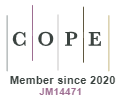The Digital Transformation at TJSP: A Technical Report on the Implementation of the Justice Automation System (SAJ)
DOI:
https://doi.org/10.5585/2025.27556Keywords:
Digital transformation, public sector, electronic judicial processAbstract
This technical report aims to present an analysis model for digital transformation in the 4th Civil Court of the Bauru District of the Court of Justice of the State of São Paulo (TJSP). Given the challenge to be overcome by the end of 2015 of transforming the entire São Paulo judiciary system into a digital system by implementing electronic processes in the 331 Courts of the State, the new processes to be distributed must be digital due to the use of the justice automation system (SAJ). The topic is increasingly important, as studies show that in public organizations, digital transformation has led to the redesign and restructuring of work configurations, procedures and structures so that new technologies can be institutionalized. This study contributes by: (i) expanding empirical research on system implementation in public services; (ii) exploring how this transformation occurred in one court of the Court of Justice of the State of São Paulo; and (iii) proposing the replicability of the analysis model for digital transformation in public and private organizations, with the potential to expand the study to other TJSP courts.
Downloads
References
Alvarenga, A., Matos, F., Godina, R., & Matias, J. C. O. (2020). Digital transformation and knowledge management in the public sector. Sustainability, 12(14), 5824. https://doi.org/10.3390/su12145824
Arnoud, A. N. D. (2014). De uma análise sobre o processo judicial eletrônico e o PJe. Jus.com.br. Recuperado de: https://jus.com.br/artigos/34772/de-uma-analise-sobre-o-processo-judicial-eletronico-e-o-pje.
Brunetti, F., TQM-12, 2019-0309. et al. (2020). Digital transformation challenges: Strategies emerging from a multi-stakeholder approach. The TQM Journal, 32(4), 697-724. https://doi.org/10.1108/TQM-12-2019-0309
Da Silva Brognoli, T., & Ferenhof, H. A. (2020). Transformação digital no governo brasileiro: Desafios, ações e perspectivas. Navus: Revista de Gestão e Tecnologia, 10(1), 1-11. http://dx.doi.org/10.22279/navus.2020.v10.p01-11.989
Faria, C. A., Hupffer, H. M., & Berwig, J. A. (2022). Inteligência artificial na advocacia: Principais impactos e desafios. Revista dos Tribunais, 1045, 205-225. https://www.researchgate.net/publication/387756338_A_INTELIGENCIA_ARTIFICIAL_NA_ADVOCACIA_PRINCIPAIS_IMPACTOS_E_DESAFIOS.
Fonseca, F. F., Cunha, D. M., Vieira, E. O., & Modena, C. M. (2018). Implicações de novas tecnologias na atividade e qualificação dos servidores: Processo judicial eletrônico e a justiça do trabalho. Revista Brasileira de Saúde Ocupacional, 43, e4. https://doi.org/10.1590/2317-6369000022616
Lakatos, E. M., & Marconi, M. (2022). Metodologia científica (8ª ed.). Atlas.
Leal, S. C., & Rodrigues, R. M. (2018). Transformação digital no setor público – Como e por que fazer. In Anais do Congresso de Transformação Digital. Recuperado de: http://bibliotecadigital.fgv.br/ocs/index.php/ctd/ctd2018/paper/viewFile/6970/1965
Monteiro, L. F. (2021). Desafios para a transformação digital no setor público brasileiro. Revista do TCU, (145), 4-8. https://revista.tcu.gov.br/ojs/index.php/RTCU/article/view/1662/1810
Mountasser, T., & Abdellatif, M. (2023). Digital transformation in public administration: A systematic literature review. International Journal of Professional Business Review, 8(10), e02372. https://doi.org/10.26668/businessreview/2023.v8i10.2372
Osborne, S. P., Cucciniello, M., Nasi, G., Zhu, G., et al. (2022). Digital transformation, artificial intelligence and effective public services: Challenges and opportunities. GPPG, 2, 377-380. https://doi.org/10.1007/s43508-022-00058-7
Popa Tache, C. E., & Săraru, C. S. (2024). Evaluating today’s multi-dependencies in digital transformation, corporate governance and public international law triad. Cogent Social Sciences, 10(1). https://doi.org/10.1080/23311886.2024.2370945
Schallmo, D., Williams, C. A., & Boardman, L. (2017). Digital transformation of business models: Best practice, enablers, and roadmap. International Journal of Innovation Management, 21(8), 1740014. https://doi.org/10.1142/S136391961740014X
Schedler, K., Guenduez, A. A., & Frischknecht, R. (2019). How smart can government be? Exploring barriers to the adoption of smart government. Public Management Review, 21(1), 3-20. https://doi.org/10.1080/14719037.2018.1438493
Tangi, L., Janssen, M., Benedetti, M., & Noci, G. (2021). Digital government transformation: A structural equation modelling analysis of driving and impeding factors. International Journal of Information Management, 60, 102356. https://doi.org/10.1016/j.ijinfomgt.2021.102356
Teixeira, J. A., & Rêgo, M. C. B. (2017). Inovação no sistema judiciário com a adoção do processo judicial eletrônico em um Tribunal de Justiça Brasileiro. Revista Ciências Administrativas, 23(3), 369-384. https://doi.org/10.5020/2318-0722.23.3.369-384
Tribunal de Justiça do Estado de São Paulo (TJSP). (2015). Implantômetro. TJSP. Recuperado de: https://www.tjsp.jus.br/CemPorCentoDigital/CemPorCentoDigital/Implantometro
Tribunal de Justiça do Estado de São Paulo (TJSP). (2023). Cem por cento digital. TJSP. Recuperado de: https://www.tjsp.jus.br/CemPorCentoDigital
Veile, J. W., Kiel, D., Müller, J. M., & Voigt, K. I. (2019). Lessons learned from Industry 4.0 implementation in the German manufacturing industry. Journal of Manufacturing Technology Management, 30(8), 977-997. https://doi.org/10.1108/JMTM-08-2018-0270
Yu, A. S. O., Nardy, A., Hirano, H. I., Oliveira, J. F. A. D., Ribeiro, N. D. V., & Grando, N. (2024). Tomada de decisão nas organizações: o que muda com a Inteligência Artificial?. Estudos Avançados, 38(111), 327-348. https://doi.org/10.1590/s0103-4014.202438111.017
Downloads
Published
How to Cite
Issue
Section
License
Copyright (c) 2025 Juliana de Camargo Fiorini, Cristina Lourenço Ubeda

This work is licensed under a Creative Commons Attribution-NonCommercial-ShareAlike 4.0 International License.
- Abstract 79
- pdf (Português (Brasil)) 49






